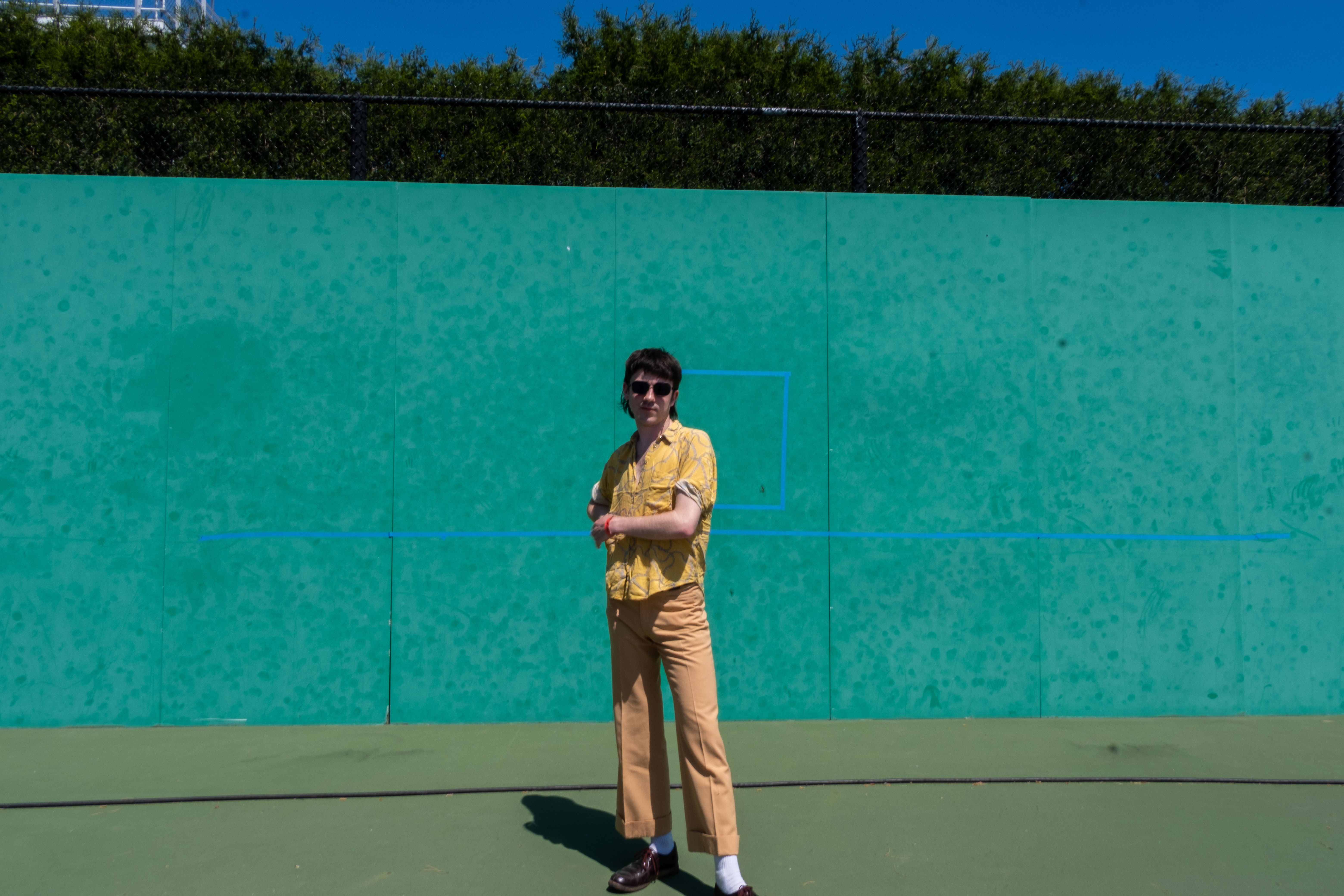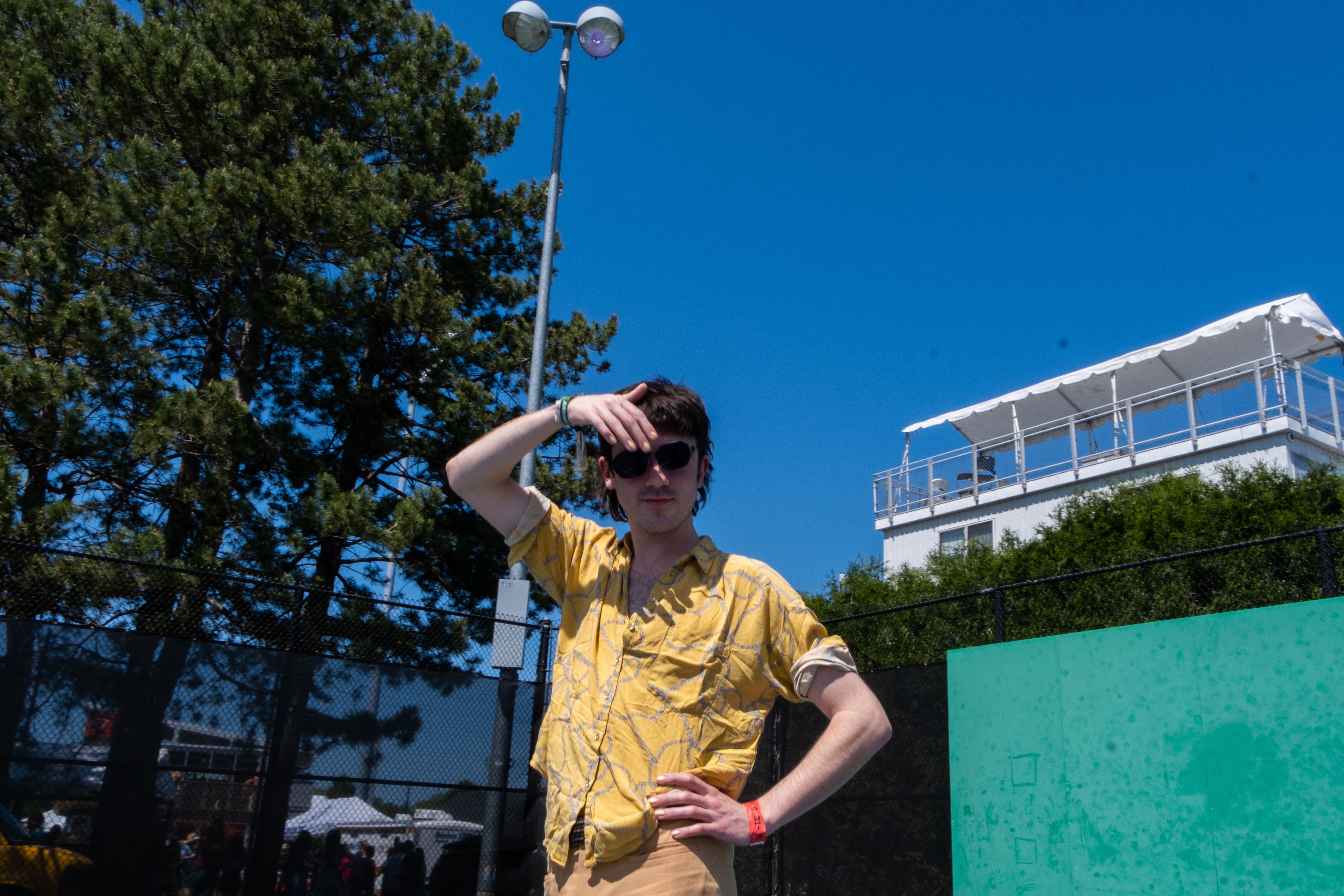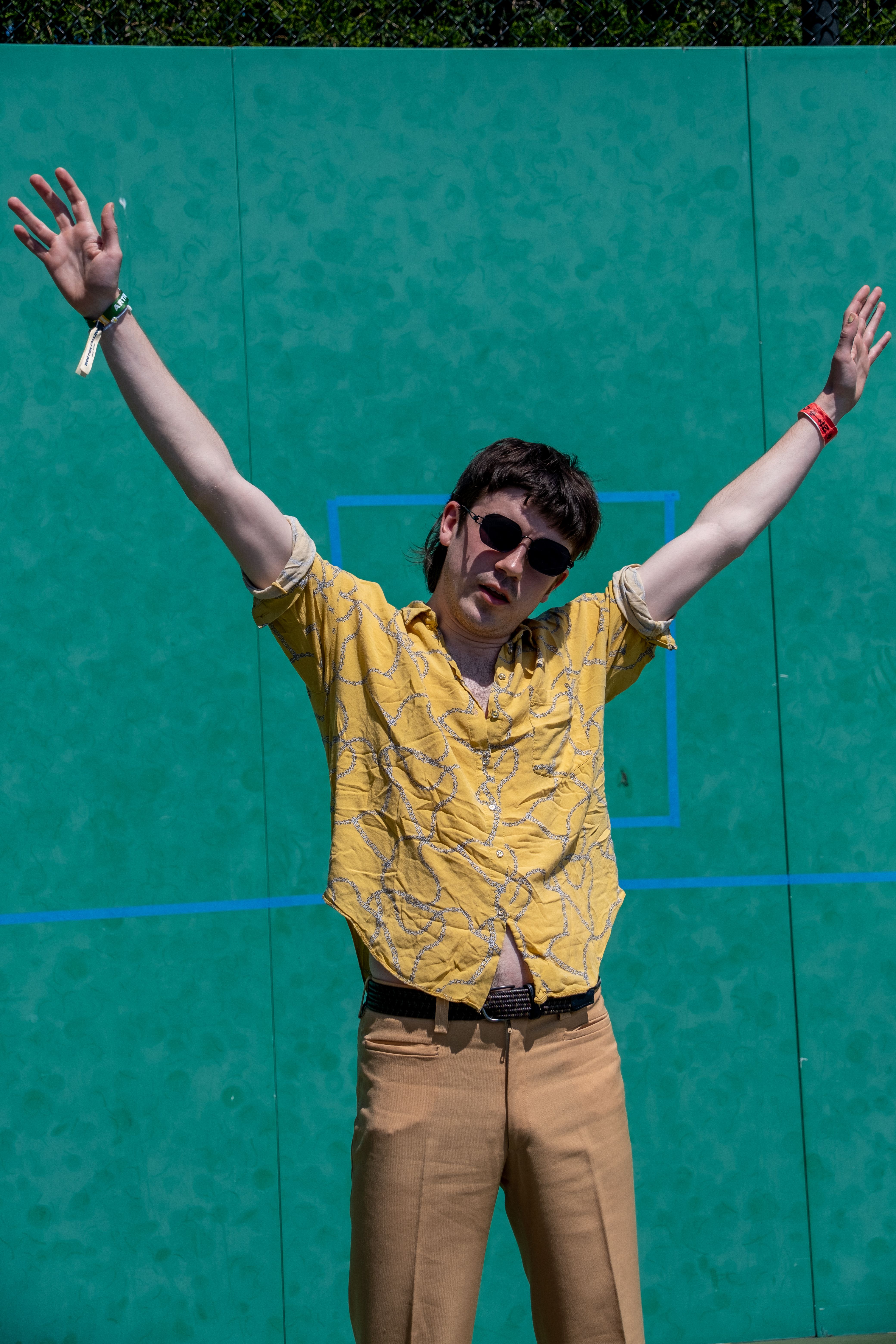Q&A with Declan McKenna at Boston Calling

English singer-songwriter Declan McKenna is an up-and-coming indie artist drawing praise for his diverse musical stylings and socially charged lyrics. His latest album, Zeros, received critical acclaim, with many reviews comparing the glam rock sound on the album to David Bowie. Declan is in the midst of The Big Return Tour, playing cities throughout North America this summer and fall. He sat down with WRBB 104.9 FM prior to his set at Boston Calling to talk about having to wait to play Zeros in front of live audiences, keeping up the energy on tour, and the contradictory actions of FIFA.
Arslan Sheikh: Declan, thank you so much for taking the time to sit down with us. We’re so excited to see your set I wanted to start this interview off with a little bit of a personal anecdote. So I first heard your song “Isombard” on the FIFA 17 soundtrack.
Declan McKenna: Oh yeah, exactly there.
AS: Yes, I loved it when I heard, it was great! Knowing now that your first breakout hit, “Brazil” was a song that was protesting FIFA's corruption with regards to the 2014 World Cup, did you enjoy that sweet irony when that same organization that you protested asked, “We love your song, can we put it in our product?”
DM: [Laughs] Yes, some might call it a contradiction. Yeah, I took some joy out of it. I kind of grew up with FIFA and am obviously a big football fan. I mean, FIFA hasn't really stopped being a total sort of shitshow the whole time. So I don't know, you got to say your piece, but yeah, it was a bit of a childhood dream at the same time to me for us to do the game. It's like a mixture of emotions, but particularly at the time, being 18 or whatever and being asked to be on the soundtrack, I was just like “I’m not gonna say no.” Yeah, it's pretty funny.
AS: You released [Zeros] in 2020, but last year and this year you've been touring it. What's it like going on tour with such a long interval between the release and being able to play it live? Have your feelings on some songs changed in that period?
DM: I mean, really, when we were doing the proper Zeros tour stuff, I was playing everything from the album because I just really wanted to do it. It just felt really good in a way, because we'd made the album with the live stuff in mind and then recorded it with the band in a relatively traditional way. So yeah, going out and playing it live was great. And to be honest, it just changed the whole thing for me, you know, it had been dampened and just a little bit unfortunately overshadowed by the circumstances. But then going out and seeing what it means to people, it just brings it all back and it gives a sort of new excitement with it. Up until recently, we were playing the full album every night and really enjoying it. So, you know, it was a tough period, but it was cool to be able to do that eventually.

Photo credits: Henry Shifrin
Henry Shifrin: I saw you in 2021 night two at the O2 Brixton, and then I also saw you at The Sinclair this past October. Two very different venues, and today you’re playing a third, very different place. Every time I leave the show, I’m like “He has the most energy, the crowd is so into it!” How do you keep up that vibe when you’re performing for large crowds?
DM: I don't know, “eat your vegetables” sort of vibe? I'm trying to stay healthy, because you’ve got to keep it up. I always have the most energy. Sometimes when you've been out on tour for a while, you start to get run down. You have a cold going on and you're just like, “I don’t know if I can give this all tonight?” But I always find a way to do something kind of weird and I just get people on board. You just get used to it and always just got to read the room. I think it helps when people turn up with the energy as well. You know, when people are ready the minute you come on stage. I started the tour in Montreal the other night and it felt like we had a really good show on the band's side. But if we didn't have people just sort of singing along and going for it to start, it's much harder to keep up. It's a bit of a reciprocal thing with the crowd. And the heat today will be a factor, you know. It’s going to be slightly different, like there might completely be our crowd. We don't know exactly what we're going to get. So you’ve just got to roll with the punches and read the room and just hope it works out. But yeah, I've had a bit of practice with it now, so we’ll see.
AS: I wanted to ask you a question about your song, “British Bombs,” because I really appreciated the themes that you brought up and talked about, Western imperialism and these Western powers intervening in these conflicts around the world. You specifically mentioned the Yemeni conflict that hasn’t gotten a lot of mainstream coverage. What inspired you to write this protest song in the spirit of other London groups like The Clash?
DM: It was kind of an immediate reaction because, what I hadn't realized about the Yemeni conflict was that, at the time when I wrote it, which must be almost five years ago now, was how Britain was still selling arms to Saudi Arabia in that period of time. I just think that whole industry is immoral. So I don't know, it was one of those ones that came out at that time in the heat of the moment of learning about all of this. It's standard procedure for me, sometimes, when we get that flash moment of inspiration, this little ball of fire just comes out and you just say your piece about it. I love it. But yeah, it was a really important thing for me to talk about because it's easy to overlook when it's like, “Oh, we’re not at war.” Part of what inspired it really was a conversation with a friend of mine who was like, “Britain has never not been at war in our whole lifetime.” And we just don't see enough about it. But we’ve always got our fingers in some kind of pie and involved in war. There are times where you forget it. And so “British Bombs” is a reminder of that.
AS: Recently with your album Zeros, you've got a lot of professional reviews comparing you to David Bowie, and some have even dubbed you “this generation's David Bowie.” So how do you handle the expectations that come with getting compared to such an iconic artist? And is there a specific era or aspect of Bowie's long career that you feel like you’ve gravitated towards?
DM: My general way of dealing with these things is just by making fun of them, really. I grew up in a lot of ways listening to Bowie. He’s a big influence and the last record had this glammy influence there that was definitely like a retro futurism to it. It is very Bowie. But I just try and I think with the next release people maybe will probably keep comparing me to Bowie but it's not going to sound like that. I think that's part of the spirit of Bowie, you know, keeping things moving. And that's why I was always into that stuff. The new record sounds a lot more modern, I think. And the production is something that, maybe people start comparing me to some other guy?
AS: I love that. We're definitely looking forward to your next release, whenever that may come.
DM: It's going to be soon-ish.
AS: We'll be keeping an eye out for it.
